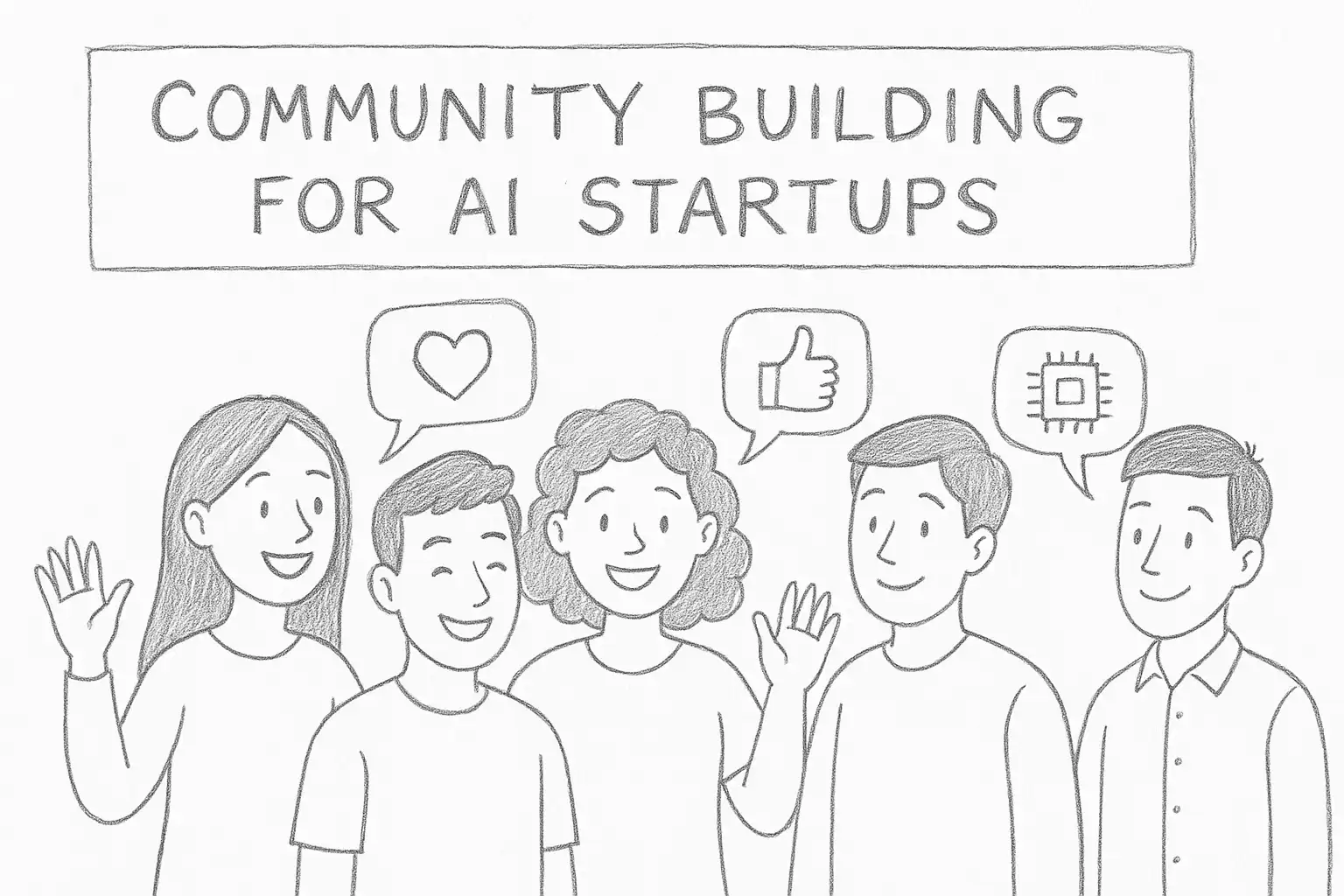Why Community Building is Important for AI Startups

I recently had a chat with co-founders of an AI startup. They’re building a smart AI agent to automate marketing, and honestly - it looks promising. We ended up discussing user acquisition, retention, and organic growth.
I thought of compiling the ideas in this article for the benefit of AI startups who are navigating the same challenges.
Here’s the tl;dr version of our discussion:
tl;dr
Feedback loops from communities help train AI models and shape product-market fit.
Early adopters in your community build brand trust and drive retention.
A strong community is your moat in an overcrowded AI tools market.
Communities Create Feedback Loops That Train and Guide
Every AI startup asks the same two questions: “Is my model good enough?” and “Do users actually want this?”
A well-run community answers both questions. Members highlight blind spots, share use cases that you, as founders, have never imagined and point out what’s working vs. whats “nice to have”.
Think of your community as a real-world input that becomes your feedback loop. It will help you make better decisions about your product roadmap as well as improve your model training data.
Trust me, it’s far better than coding in the dark. You need to build your product with your users.
Frankly speaking - we use the same technique to build Jatra. Our community members tell us what problems they are facing - and we solve those problems by building features that benefit all our customers.
FYI - if you are curious, I wrote: Why D2C Brands Must Build Customer Communities in AI-Era.
Trust: The Hardest Problem in AI
The AI tools market has literally exploded in the past few months. Users have a choice of at least 5 - 10 tool that promise to solve the same problem. It’s become harder for users to blindly trust a new shiny AI tool.
Users worry about bias, accuracy and whether the product will exist next year.
Community fixes that gap. When users see founders answering questions, participating in discussions, shipping improvements based on feedback and being transparent - trust builds!
It also helps turn your early adopters into brand ambassadors. They will defend your product on X, Instagram, Reddit and other open forums. They’ll help bring new users.
I’ve been in the marketing domain for nearly two decades and can tell you - it’s the customer advocacy that can’t be bought. It needs to be earned inside your community.
Standing Out in a Overcrowded AI Market
Every week, you’ll see a dozen new tools launch on Product Hunt. They look the same, promise the same output - but often vanish in months.
Gone are the days of using ‘features’ to stand out in the market. It’s all about the relationships around your product. When your early adopters and customers identify with your community, switch costs shoot up.
A user leaving the product is actually leaving the community and the network. People don’t like to do that.
That’s the reason communities act as defensive moats in AI. Competitors can copy your. features. But they can’t copy your people.
Quick Guide to Building Community Around Technical Products
During our call, we discussed the following playbook to building a user community around technical products. Here’s how to do it -
1. Pick the Right Platform
If your target audience is technical, they’ll likely prefer forums, Slack, or Discord. But if long-life content and SEO are important, you need a purpose-built platform that lets discussions rank on Google. Here’s a guide on How to Choose The Right Community Platform that might help.
2. Incentivize Early Adopters
Invite them to private betas, host AMAs, or give them contributor badges. These small rewards turn them into invested partners.
3. Enable Peer-to-Peer Support
If only you talk, it’s an announcement channel. When users start helping each other, it becomes a self-sustaining community.
4. Keep It Lean
Don’t over-engineer. Start small, ship value, and let the structure evolve. Communities, like products, grow through iteration.
I always say - Community is the Highest RoI Growth Asset your business can have. It’s the real ‘unfair advantage’ your startup can have in a crowded market.
If you want to discuss building a community for your AI startup, feel free to comment or schedule a call.